Chair in university teaching
The Chairholder will receive a three-year non-renewable appointment, an annual fund of $20,000, and the Chairholder's Faculty will provide one assistantship.
Vision and Mission
Since 2012, the Chairs in University Teaching have underscored the University of Ottawa's commitment to teaching excellence.
The Chairs program aims to:
- promote teaching and learning practices that will benefit the entire university community.
- recognize the value of leadership and excellence in university teaching
- support faculty who are committed to advancing research in teaching and learning to impact practice across the University.
As part of the Transformation 2030 strategic plan, the Chairs are committed to
- Promote inclusive, engaging, innovative and effective teaching and learning practices;
- exploring new pedagogical approaches and emerging technologies
- fostering approaches to student engagement and the quality of their post-secondary learning experience
- promote student well-being and the valuing of diversity.
The Chairholder will receive a three-year non-renewable appointment and an annual fund of $20,000. To highlight the significance of this appointment, the Chairholder's Faculty will provide one assistantship (130 hours per year). During the appointment, the Chairholder will join the Research Unit for the Advancement of the Scholarship of Teaching and Learning (ASoTL) housed within the Teaching and Learning Support Service (TLSS) and work collaboratively with fellow Chairs to play an active role in the promotion of teaching excellence and the enhancement of student learning in all sectors of the University community.
The Chairholder will lead a three-year research program with implications for the broader University teaching and learning community, which will relate to:
- Significant transformation of teaching and learning practices in their field; and
- Scholarly development and research in the field of university teaching and learning.
- The Chair in University Teaching will also serve as a keynote speaker at TLSS and University of Ottawa events, which may include: the New Professor Orientation Program, the annual Perspective Symposium, and TLSS lecture events. In addition to submitting an annual progress report, the Chairholder will disseminate the results of their scholarly work (via conference presentations, articles, and the TLSS website) and give a public presentation in the final year of their program.
Re-focusing on the enhancement of campus-wide pedagogy and the promotion of leadership in educational change (whether disciplinary or institution, faculty or program level), the competition for the 2024 Chair in University Teaching will take into account applications in two distinct profiles. The profiles aim to support a broader spectrum of capable Chair in University Teaching candidates and allow submissions to each profile to be evaluated against recommendations from similar contexts.
Profile A
| Profile B
|
Emphasis on Boyer's definition of research, either discovery, integration, or/and application. * | Emphasis on Boyer's definition of research as application and teaching and learning (SoTL).* |
Distinct criteria | |
|
|
Common criteria | |
For more detailed information please consult the "selection" tabulation | |
Common Applicant Contexts | |
|
|
*Boyer (1990) proposes that scholarship include the following four categories:
The scholarship of discovery includes original research that advances knowledge (i.e., basic research);
The scholarship of integration involves a synthesis of information across disciplines, across topics within a field, or across time (i.e., inter-professional education or science communication);
The scholarship of application goes beyond the service duties of a faculty member to those within or outside the University and involves the rigour and application of disciplinary expertise with results that can be shared with and evaluated by peers; and
The scholarship of teaching and learning involves systematically studying teaching and learning processes. It differs from scholarly teaching because it requires a format allowing public sharing and the opportunity for application and evaluation by others.
Boyer, E. L. (1990). Scholarship reconsidered: Priorities of the professoriate. Princeton University Press.
First Round
Applications submitted for the first round of selection (Expression of Interest for screening) must include:
a completed PDF application form, which will contain a one-page description of the project and a description of potential contributions to a research unit on Advancing Knowledge in Post-Secondary Teaching and Learning (ACEAPS) and enhancing the student experience across the Ottawa university community
A current curriculum vitae of no more than 4 pages;
If applicable, for Profile A, please highlight in the resume:
Contributions to program development or development of teaching and learning initiatives and resources
Evidence of an ability to partner and collaborate with peers internal and external to uOttawa.
Evidence of ability to manage large-scale projects
If applicable, for profile B, please highlight in the curriculum vitea :
Examples of SoTL
A copy of the A report (course evaluations) for the last 3 years (Until fall 2023)
For profile B only: Letter of support indicating employment at uOttawa for the next three years
Download the PDF application form
The deadline to submit an Expression of Interest is March 1st, 2024 at 4:00 pm.
To apply, send a complete statement of interest (submission form, CV, copy of A report) in PDF format to bkaramif@uottawa.ca.
TLSS will contact the successful candidates (two or three candidates will be selected for the second round) during the week of March 20 to inform them of the selection committee's decision. Successful applicants will be provided with the necessary information to assist them in preparing a complete application for the second round.
Second Round
Following the selection of applications, the committee will contact the selected candidates. Successful applicants will be required to submit a full proposal which must include (details on each section below will be provided in a submission guide that will be shared with successful applicants)
The title of the project
a detailed description of the proposed project (6 pages + 1 page reference)
a 4-page curriculum vitae (focusing on the last five years)
a 5-page teaching dossier (see FAQ section for relevant details)
a letter of recommendation from the dean
two additional letters of recommendation
a more detailed description of potential contributions to the University of Ottawa academic community and the Advancing SoTL Research Unit.
Please consult the second-round guide and evaluation grid by clicking on the links below.
The deadline for this second round is May 15, 2024. Following the second round, the committee will contact the candidate and the new chairholder will be able to begin the project as early as July 1, 2024.
For more information, please contact the Teaching and Learning Support Services (TLSS) at bkaramif@uottawa.ca.
An informal information session on the Chairs in Academic Pedagogy program will be held on January 11, 12, 15, 16 at noon via Zoom. Topics will include:
information about the roles and functions related to the Chair;
expectations of the Chairholders; and
the selection process.
For the registration in any of these sessions please click below.
For any inquiries, please contact Dr. Banafsheh Karamifar.
Frequently asked questions (FAQ)
No. While both initiatives encourage innovation in University teaching, they are separate programs. Chairholders are first and foremost ambassadors of instructional excellence and play an active role in promoting innovative teaching and learning practices across all sectors of the University community. Chairholders are expected to undertake projects that go beyond the course level and have a more significant impact on their Faculty and University community.
As the term is three years in length, Chairholders are expected to contribute to the scholarly development of university teaching through the dissemination of their research, involvement in the Centre for University Teaching’s faculty development programming and/or the development of resources.
Chairholders
Raywat Deonandan (2023)

Associate professor
Faculty of Health sciences
Project description
Professor Deonandan’s project consists of a trio of studies designed to evaluate the effectiveness of AI tools in enhancing writing and facilitating student learning. An initial scoping review will identify available AI tools, and then a multi-pronged experiment will assess objective appraisals of writing quality based on the use of AI tools. Finally, an uncontrolled trial will monitor changes in how graduate students approach writing tasks when exposed to AI tools.
Andrew Sowinski (2022)
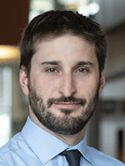
Assistant Professor, Faculty of Engineering
Project description
In today's technological world, megadata and data-driven decision making have become integrated into almost every facet of life. In higher education, megadata and its uses are sometimes referred to as "learning data." Learning data can generally be thought of as the use of institutional and instructional data to improve student retention and the quality of the student experience. Some applications include using the data to identify at-risk students, to suggest specific interventions, and to guide course and program design.
Simon Beaudry (2021)

Director, Research & Innovation, INSPIRE Core Facility, Faculty of Social Sciences
Part Time Professor, School of Psychology
Project description
We know it: extensive research has demonstrated time and again that excellent professors create optimal learning environments by supporting students’ basic psychological needs. However, what happens when professors don’t have the energy, the motivation, or even the possibility to make the learning environment optimal? The overarching goal of this program of research is to address the difficulties faced by students who find themselves in such adverse learning contexts where their psychological needs are unmet. Using a theoretical and practical rationale from Self-Determination Theory (SDT; Deci & Ryan, 1985; Ryan & Deci, 2017), this project aims to develop tools that will build autonomous learners able to thrive in various learning contexts. Moving away from hard to implement professor-focused interventions, this program will instead orient the spotlight toward catalysing academic resilience so that students may learn to help themselves.
Karine Vanthuyne (2020)
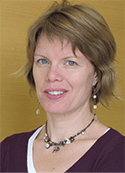
Associate Professor, Sociological and Anthropological Studies
Project description
As part of the 3-year Chairship appointment, Professor Vanthuyne will build on an initiative led by the Indigenization and Decolonization Committee of the uOttawa Faculty of Social Sciences (FSS), in collaboration with uOttawa Indigenous Affairs and the Indigenous Resource Centre (IRC) Mashkawazìwogamig. The project will critically examine the strategies employed by the FSS’s Indigenous Curriculum Specialist (ICS) to Indigenize the FSS’s course curricula; the challenges and opportunities these strategies present for the FSS faculty, teaching assistants (TA), students, and staff; complementary approaches deployed by ICSs at other universities for Indigenizing post-secondary course curricula; and the various resources, knowledge, skills and incentives required to implement effective strategies at uOttawa and beyond. The project will be guided by the following research question: How can ICSs best support universities’ faculty in infusing Indigenous contents, pedagogies, and philosophies throughout their curricula?
Judy King (2019)

Associate Professor, Faculty of Health Sciences
Project description
As part of the 3-year Chairship appointment, Professor King will lead this project collaboratively with the support of an interdisciplinary advisory committee consisting of representatives from different faculties, the library, the SASS, the TLSS and graduate and undergraduate students. The different theoretical and practical perspectives of critical thinking offered by this committee will help guide a pan-institutional scan of practices and the development and implementation of teaching and learning resources. The following research questions will guide the project: 1) Currently, within the University of Ottawa, how are students particularly well helped to develop critical thinking? 2) How can we use these successful experiences' knowledge to enhance the university's critical thinking?
Rebecca Tiessen (2018)
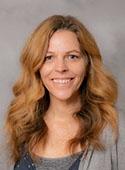
Full Professor, International Development and Global Studies, Faculty of Social Sciences
Project description
As part of the 3-year Chairship appointment, Professors Tiessen, Abu-Zahra, and Wills of the Faculty of Social Sciences will collaborate on this project with the support of the International Office, the Michaëlle Jean Centre for Global and Community Engagement, and a host of student groups. The project will focus on improving faculty engagement in internationalization and intensify efforts to internationalize curriculum which will help to make uOttawa a world-class university dedicated to excellence in intercultural learning. The objectives of this Chairship project are: 1) To assess and map existing internationalization strategies among uOttawa faculty and staff and to share information across faculties about effective practices for globally-engaged learning; 2) To examine existing internationalization learning opportunities in relation to the uOGlobal learning outcomes to evaluate successes and gaps; 3) To develop a plan for enhancing these international educational experiences, develop and design new models of learning, and mobilize increased faculty adoption of transformative and globally-engaged curriculum and learning for students; and 4) To share knowledge in a 'training of trainers' initiatives to facilitate improved international education curriculum development.
Eileen O'Connor (2017)

Associate Professor, Faculty of Health Sciences
Project description
Building on previous collaborative work to develop a WIL toolkit for Ontario Universities and Colleges (2016), this project will focus on adapting the toolkit template by consolidating and disseminating knowledge on effective practices within our wide range of work-integrated learning offered through programs, research and innovation at uOttawa. Specifically, the objectives of this Chairship project are three-fold: 1) collaborate on developing an inventory of uOttawa WIL opportunities; 2) foster synergies through a forum for discussion and research on effective practices, challenges and opportunities for WIL at uOttawa; and 3) create support tools for students to enhance their WIL experiences. Taken together, this Chairship project will contribute to building capacity in WIL at uOttawa, and in partnerships with the community, government, and/or industry as we respond to the growing interest for students to acquire effective WIL in their programs of study.
Alison Flynn (2016)

Associate Professor, Department of Chemistry and Biomolecular Sciences
Associate Vice-Provost - Academic Affairs
Project description
University students have to learn in many different formats (e.g., lecture, online, blended, flipped, labs) and manage many different courses and life expectations (e.g., part-time jobs, clubs, sports, volunteer work, family). To be successful, students need to know and continually monitor their learning plus develop autonomy and professional capacity skills; these are two Undergraduate Degree Level Expectations (UDLEs 5 and 6) and are components of self-regulated learning (SRL). Currently, few programs, courses, and online resources address SRL skills. In this project, Alison Flynn will develop (1) an annual workshop will help students learn domain general SRL skills, (2) modules that will target domain-specific SRL skills (i.e., SRL skills that are specific to a course or discipline), and (3) a practical participatory evaluation of the first two initiatives.
To learn more and follow the progress of the projects, visit: flynnresearchgroup.com/chair/
To consult the final report of the project, please click here.
Maurice Taylor (2014)

Full Professor, Faculty of Education
Project description
One of the recommendations from a recent University of Ottawa report suggests that our university adopts blended learning at a large scale. This type of instructional model blends online and in-class learning. To help move this initiative forward, Maurice Taylor, from the Faculty of Education will be conducting a three-year study that investigates the current conditions across different faculties toward large scale adoption and the best practices in blended learning here at the university and other leading provincial universities. Results will help to determine action plans and the tools aimed at transforming instructional practices and teaching innovation.
Jenepher Lennox-Terrion (2013)

Professor, Department of Communication
Project description
Given the place of large classes in today's universities, understanding how they can be best delivered is significant. The development of positive relationships between instructor and students through the professor's verbal and nonverbal communication, or teacher immediacy, is important to learning. Therefore, this study will assess the degree to which highly rated professors of large classes demonstrate teacher immediacy and catalog how they do it. The study will produce guidelines for teaching large classes focused specifically on building teacher immediacy and, ultimately, positive classroom relationships.
Scott Findlay (2012)
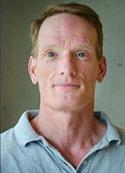
Professor, Department of Communication
Project description
The project on synthetic science will provide the opportunity for undergraduate students to contribute and actually do scientific research by extracting information from published studies using validated protocols, populating electronic databases with these data, and using the resulting synthesized data to test scientific hypotheses. This approach overcomes the logistical barriers associated with limited laboratory time and facilities, creating the potential to train students to think like scientists by doing actual science.
Jacqueline Carnegie (2012)
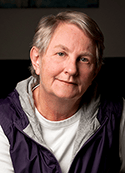
Professor, Department of Cellular and Molecular Medicine
Project description
Undergraduate students explore pathophysiology beginning with the disease rather than the patient. This project involves the creation of learning modules, each with a video to acquaint students with a patient (student actors). The goals are to facilitate learning by personalizing the study of diseases, promoting learning through application, and encouraging patient-oriented storage of disease-related information in long-term memory.